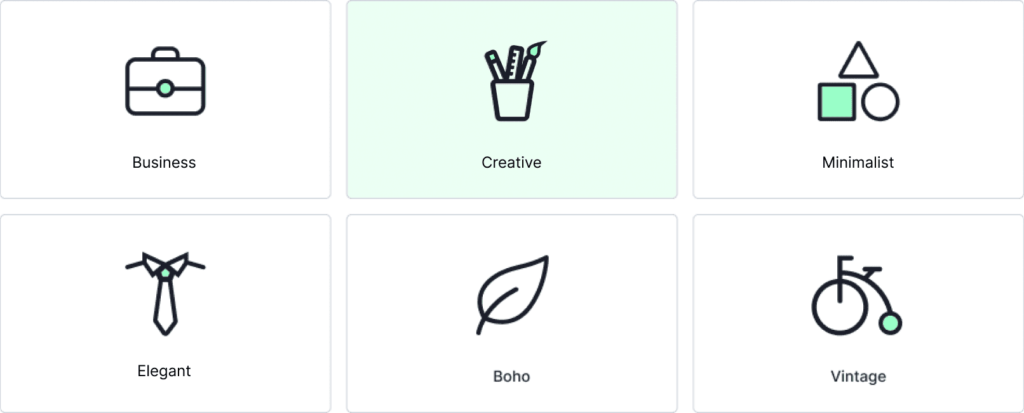As technology evolves, it’s becoming clear that AI’s role in enhancing user experience doesn’t stop at content creation. The future lies in AI-powered website design, a toolset that promises to revolutionize how websites are built, optimized, and maintained. Here’s why AI in website design is not just an option but a necessity for staying competitive.
Beyond Content: The Case for AI in Website Design
Enhanced User Experience
AI takes user experience (UX) to a new level by analyzing vast amounts of data to understand user behavior and preferences. With this information, AI can design websites that are not only visually appealing but also intuitively navigable. For example, AI can optimize site layout based on user engagement metrics, ensuring that the most crucial elements are in the places most likely to draw attention.
Streamlined Development Process
The traditional website design process involves numerous stages from concept to execution, often requiring extensive time investments from website developers. AI accelerates this process by automatically generating design elements and adjusting them in real-time based on A/B testing results and user feedback. This rapid prototyping allows businesses to launch and refine their websites much faster than ever before.
Personalization at Scale
While AI-generated content can be tailored to user segments, AI in website design takes personalization a step further. AI algorithms can dynamically change layouts, navigation, and even visual elements on the fly to cater to individual preferences, making each user’s site experience uniquely engaging. This level of personalization is key in converting visitors into customers and building brand loyalty.
Cost-Effective Solutions
AI-driven design tools can significantly reduce the manpower and costs associated with manual website design. Small businesses and startups, in particular, can benefit from AI’s ability to provide professional-level design without the need for hiring expensive design firms or freelance designers.
Seamless Integration
AI in website design seamlessly integrates with other tools and platforms, including e-commerce systems, CRM software, and marketing platforms. This integration ensures that the website not only looks good but also works well with the systems businesses use to manage customer relationships and sales.
Implementing AI in Website Design: A Forward-Looking Approach
To leverage AI in website design, businesses should consider the following strategies:
- Adopt AI-Driven Design Tools: Tools like WebWave AI website builder leverage AI to help users create and manage their websites with minimal coding knowledge, making professional web design more accessible.
- Utilize Data Effectively: By harnessing data from user interactions, businesses can inform the AI systems of user preferences and behaviors, allowing for more accurate and effective designs.
- Continuous Learning and Optimization: AI tools are inherently capable of learning from their outputs. Continually refining these tools through user feedback and performance data will lead to better designs and user experiences over time.
- Integrate Across Channels: Ensure that AI-driven design aligns with overall business strategies, including marketing and customer service, to create a cohesive user experience across all channels.
WebWave: Pioneering AI in Website Design
WebWave is at the forefront of integrating AI into the web design process, providing a comprehensive platform that not only simplifies the creation of websites but also enhances their effectiveness.
Here’s how WebWave AI Website Builder is shaping the future of AI-driven website design:
Intuitive Design with AI Assistance
WebWave utilizes AI to offer an intuitive design experience that balances creativity with technology. The platform’s AI capabilities help users automatically generate website layouts based on their content and preferences, ensuring that every website is not only visually appealing but also user-friendly and aligned with the latest design trends.
Pixel Perfect Editor for Tailored Experiences
At the heart of WebWave’s platform is the Pixel Perfect editor, which allows for precise control over every element of a website. This feature is enhanced by AI, which suggests design adjustments and improvements based on user interaction data and conversion metrics. Users can fine-tune their websites to perfection, making minute adjustments that AI suggests to optimize for both aesthetics and functionality.
Real-Time Personalization
WebWave’s AI-driven approach extends to real-time website personalization. Based on visitor behavior, the platform can dynamically adjust content, layouts, and even call-to-action buttons to better suit individual visitor needs. This level of personalization is key to increasing engagement and conversion rates, making websites not just static brochures but active participants in user experience.
Seamless Integration with Marketing Tools
Understanding the importance of a holistic online presence, WebWave ensures its AI-driven design platform integrates seamlessly with various marketing tools. This integration allows for synchronized data flow across small business CRM systems e-commerce platforms, and digital marketing campaigns, enhancing the effectiveness of both the website and the overall marketing strategy.
Cost-Effective Design Solutions
WebWave democratizes access to high-quality web design with its AI-powered tools. Small businesses and startups can especially benefit from WebWave’s cost-effective solutions, which provide enterprise-level design capabilities without the enterprise-level price tag. This accessibility helps level the playing field, allowing smaller entities to compete with larger corporations.

Ongoing Optimization and Updates
WebWave is committed to continuous improvement. The platform’s AI algorithms are regularly updated based on the latest web design trends, user feedback, and new technological advancements. This commitment ensures that every website designed with WebWave remains at the cutting edge, continually optimized for performance, user experience, and conversion.
Conclusion
While AI-generated content plays a crucial role in attracting and engaging users, AI in website design is what will set businesses apart in the future. By providing personalized, engaging, and adaptive web experiences, AI-driven design not only enhances the effectiveness of online content but also drives better business outcomes. As technology continues to advance, integrating AI into website design is not just a strategic move—it’s an essential one.
